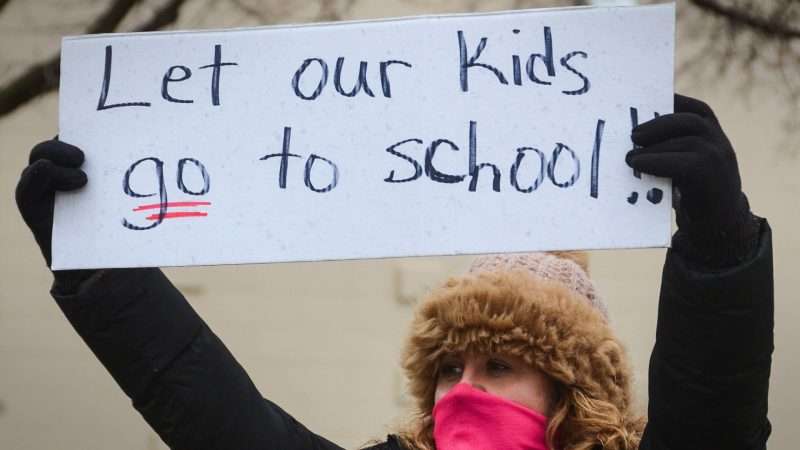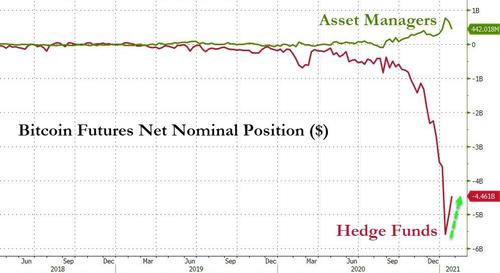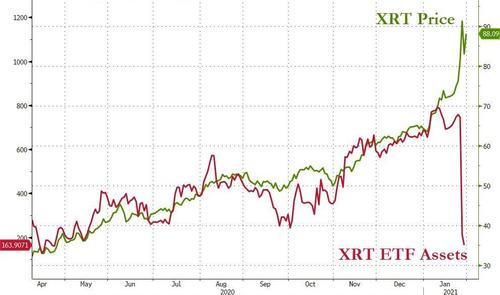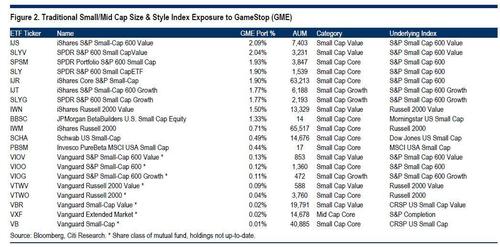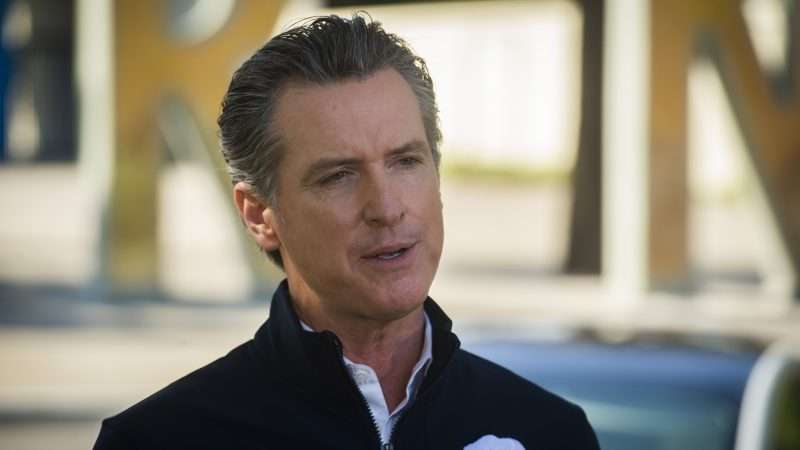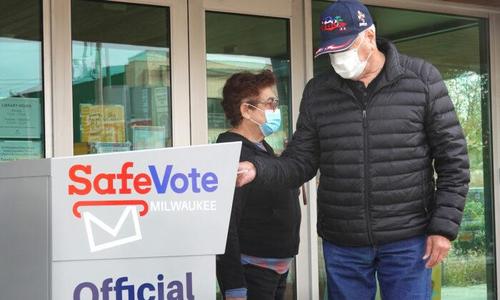Newly identified COVID-19 cases in the United States have fallen sharply since mid-January, a drop that may reflect the waning impact of infections tied to winter holiday gatherings. During the same period, daily deaths leveled off and dipped slightly, and they should decline in February given the recent downward trend in daily new cases.
According to Worldometer’s numbers, the nationwide seven-day average of new cases yesterday was about 163,000, down 36 percent from the average on January 11 but still more than four times the level recorded in mid-September. The seven-day average of daily deaths was about 3,300, down a bit from the peak of more than 3,400 on January 16 and nearly five times the average in mid-October.
Researchers at Harvard University’s T.H. Chan School of Public Health found that “deaths often occur 2–8 weeks after the onset of COVID-19 symptoms.” That suggests the recent decline in daily new cases will be reflected in fewer daily deaths during the next month.
COVID-19 symptoms that might prompt someone to seek testing appear two to 14 days after infection, which makes it plausible that the surge between late December and mid-January was tied to Christmas and New Year’s Eve celebrations. The decline since then suggests that people from different households are getting together less now, as you would expect. The absence of holidays might not be the only factor, since it seems plausible that Americans are exercising greater caution in response to the winter surge.
Did government-imposed restrictions help curb virus transmission? A comparison of California, where Gov. Gavin Newsom ordered a new lockdown on December 3, and Texas, where Gov. Greg Abbott has not imposed any new restrictions, does not provide much evidence that such measures make an important difference.
In California, the seven-day average of daily new cases has fallen by nearly half since January 13. That is twice as big as the drop Texas has seen since its peak on January 15. But California also saw a much bigger increase in newly identified cases in December, notwithstanding Newsom’s sweeping restrictions. The seven-day average in California tripled between December 1 and December 22. In Texas during the same period, the average rose by about 65 percent.
Both states recorded a dip in late December, which probably was mostly due to holiday-related reporting delays. Then daily cases moved up again in both states. In California, the mid-January peak was about the same as the number on December 22. In Texas, it was 28 percent higher, meaning that daily new cases doubled between December 1 and January 15, which is still substantially smaller than the increase in California.
This week, Newsom lifted the new restrictions he imposed on December 3, which closed many businesses, required Californians to stay home except for “essential” purposes, prohibited outdoor dining at restaurants, and banned inter-household gatherings in regions where ICU capacity fell below 15 percent. Newsom reverted to his previous rules, which limit social and economic activity based on county-level COVID-19 data. Those rules are still highly restrictive by Texas standards.
“California is slowly starting to emerge from the most dangerous surge of this pandemic yet, which is the light at the end of the tunnel we’ve been hoping for,” California Health and Human Services Secretary Mark Ghaly said on Monday. “Californians heard the urgent message to stay home when possible, and our surge after the December holidays did not overwhelm the health care system to the degree we had feared.”
California Department of Public Health Director Tomás Aragón offered a similar spin: “Californians heard the urgent message to stay home as much as possible and accepted that challenge to slow the surge and save lives. Together, we changed our activities, knowing our short-term sacrifices would lead to longer-term gains. COVID-19 is still here and still deadly, so our work is not over, but it’s important to recognize our collective actions saved lives and we are turning a critical corner.”
The slippery language used by Ghaly and Aragón conflates exhortation with coercion and voluntary precautions with legal decrees. But there is little reason to think that Newsom’s edicts—especially his bans on low-risk activities such as outdoor dining—did much to slow the surge or turn the corner. Despite taking a much stricter approach than Texas, California saw a bigger surge in cases, and that surge continued for weeks after Newsom’s order. The subsequent decline began around the same time in both states.
“I’m not sure we know what we’re doing,” San Mateo County Health Officer Scott Morrow said a few days after Newsom’s lockdown. That still seems like a pretty accurate assessment.

from Latest – Reason.com https://ift.tt/3r3nmpj
via IFTTT
